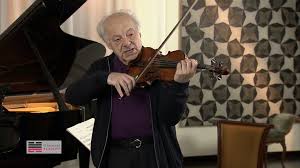Important: New EU airport rules on musical instruments apply from today
mainThe World Customs Organisation has issued a reminder that the new EU rules come into force on November 21. In effect, you should be able to take any musical instrument carried for personal use through the green channel of all EU airports. Including Frankfurt.
Press announcement below. Print it out and show it to customs inspectors.

Press release
The European Union’s recent amendment of the Customs Code’s implementing provisions regarding the temporary import, export and reimport of portable music instruments was welcomed by WCO Secretary General, Kunio Mikuriya, who praised the benefits for both cultural life and economic activities.
According to the new amendment applicable from 21 November 2013, travellers may temporarily import/export portable musical instruments as professional equipment without customs formalities. This means that when travelling with such instruments they may use the green or ‘nothing to declare’ Customs channel at airports.
Previously, portable musical instruments which were temporarily imported by travellers with the intention of using them as professional equipment were to be presented to Customs and to be declared explicitly for the temporary importation procedure. Because some musicians have been negatively affected by the application of Customs rules at import, the implementing regulation simplifies the access to the temporary importation procedure by allowing portable musical instruments intended for re-export to be declared by any other act (for instance, by going through the green or ‘nothing to declare’ Customs channel at airports) .
To mitigate similar problems in connection with export, re-export and reimport, the simplification also covers portable musical instruments which have been declared for export, re-export or which have been re-imported and declared for release for free circulation as returned goods by travellers.
At the WCO, this issue has been discussed at the Administrative Committee of the Istanbul Convention and the Meeting of the Contracting parties to the Customs Convention on the A.T.A. Carnet for the temporary admission of goods (A.T.A. Convention). Experts attending the meetings agreed that limited knowledge of the rules on temporary admission might be causing problems and concluded that raising awareness among Customs was important to ensure proper implementation of the rules.
WCO Members will continue sharing experience and operational practices regarding temporary admission and the use of the ATA Carnet.
The new regulation is available by clicking here.






Ning Feng, pictured above is an incredible violinist! Heard him this week in Berlin and it was a most inspired performance!
Bravo Ning!!!!!!!
Oh and the beautiful Strad was in his hands.
Please be aware that printing out this notification MAY help when presented to customs and security officials at airports, but it is by no means a guarantee. A similar communication was issued by the musician’s union some years ago, which I showed to a TSA official at a US airport while going through security. He was unimpressed, saying it was simply a union document that had no force whatsoever. I had to reorganize all my luggage in order to make my violin “acceptable” to carry on to the plane.
This is not about carrying them per se. It’s about import duties and the old carnet system.
especially after the Germans stole/held hostage several strads and guanieris. it is ALL about liniing someone’s pocket. imagine the duty to pay on a 4 million dollar violin?
It’s not about “lining anyone’s pocket”. It’s the exact opposite. The reason these customs regulations are taken very seriously and applied very strictly in Germany is that they should apply to everyone, not be dependent on random decisions made by customs officials. That also means that those officials are not really bribeable. It’s for the same reasons that banks and big corporations are strictly controlled in Germany. That’s why Germany didn’t have any of the housing or other economic bubbles that burned down whole economies elsewhere. People don’t have to pay duty “on a 4 million dollar violin” unless they import it with the intention to sell it.
Thanks for saying what I couldn’t be bothered to write, Michael. I’d just amend the last sentence to read ‘unless they travel without proof of purchase/ownership’ – which is something they should all know about.
It’s a very specific EU amendment by order of the President rather than an MU letter. It looks pretty solid.
The OP seems to be confusing carrying your instrument on a plane with paying customs/import duties, the subject of this ruling.
And the MU letter in turn was notice of a Home Office ruling, so equally solid. I’ve produced it myself on a number of occasions – the ruling requires security and airport officials to allow a card-carrying MU member through security and all the way to the plane door with both their luggage and their instrument in contravention of the usual ‘one-bag’ rule we’ve had here for several years.
Finally!!! I got stuck once for 8 hours in the customs area in Schiphol airport in Amsterdam, and I keep reading worrying reports of Strads getting confiscated at European airports.
Define “portable”. This should include cellos and basses, as they are not stationary and can be transported by the musician, correct?
Let’s hope the Frankfurt copies of this decree are written in capital letters.
Okay, that’s Customs in Europe sorted. Now, how about getting the instruments there in one piece…
It doesn’t need to be written in capital letters. They followed previous EU guidelines which weren’t written in all capital letters, not something they had made up themselves. They were just more consistent in implementing the rules than customs in other places.
So they will follow these guidelines consistenly now.
Yes, yes, I know, that’s another German stereotype you love, “they always follow the rules”. But that’s the way it should be. The rules should be followed consistently. They should apply to everyone, not applied randomly.
And yes, I guess Germans on the whole do follow the rules more consistently. That’s why the economy still works. That’s why there was no housing bubble there. It’s all interconnected.
Who will translate it into Ruhrpot? (dialect of Frankfurt region, don’t know how it’s spelled)
I suppose you mean “Ruhrpott”, which however is neither a dialect nor has it to do with Frankfurt. It’s a somewhat informal name for the Ruhr metropolitan area (“Ruhrgebiet”), which includes Essen, Dortmund, Bochum and other cities. (Some say, it includes Düsseldorf as well, but Düsseldorfers would reject this.
The dialect spoken in Frankfurt is called “Hessisch”. But the customs officers will read standard German as well.
Actually the dialect spoken in the Ruhrgebiet is often called “Ruhrpott” or just “Pötsch” or “Pott” in the area, sometimes it’s also called “Kumpel” after the traditional word for the miners in the area as it is essentially a working class dialect – the correct linguistic name for it is “Ruhrdeutsch”.
But yes – you are correct, that is a completely different region and dialect which tells us that John Koen doesn’t know what he’s talking about, he just wanted to unload one of his anti-German prejudices.
You are welcome, John.
Great! just printed out…
Finally, this is over!!!!!!!!!!!!!!!!!
And you helped make it happen!
What’s to stop someone from carrying in an instrument that she/she intends to sell? Merchants of rare instruments are going to love this as a way to get around paying duties and taxes. It’s a free pass.